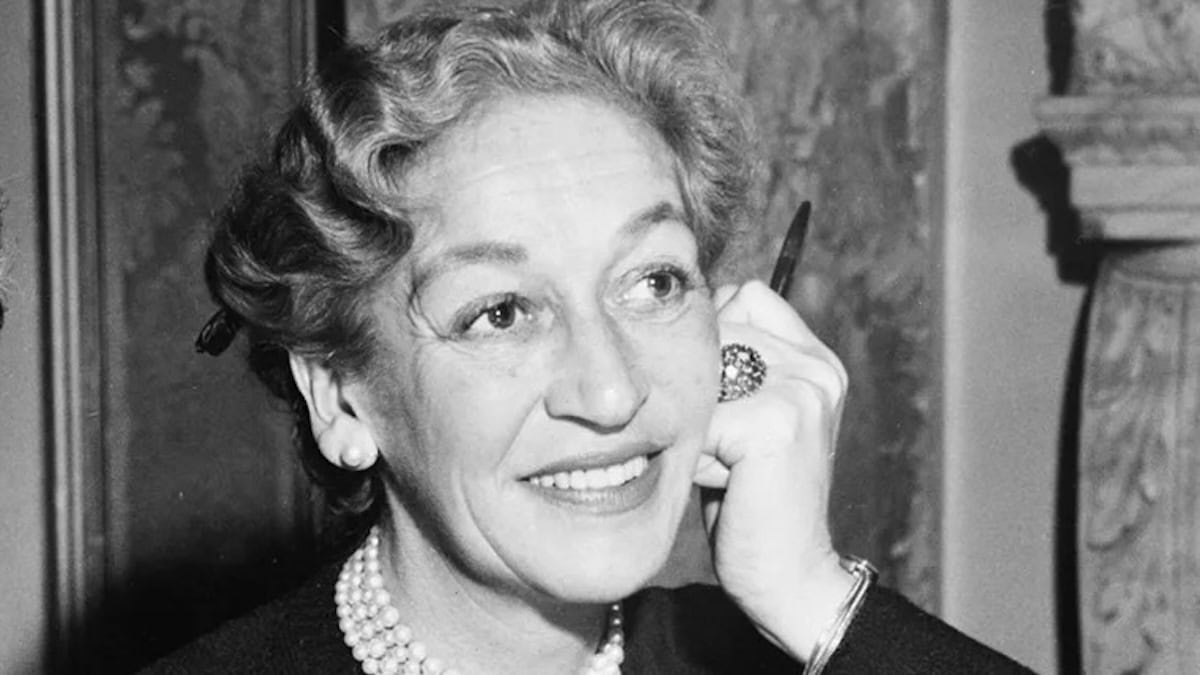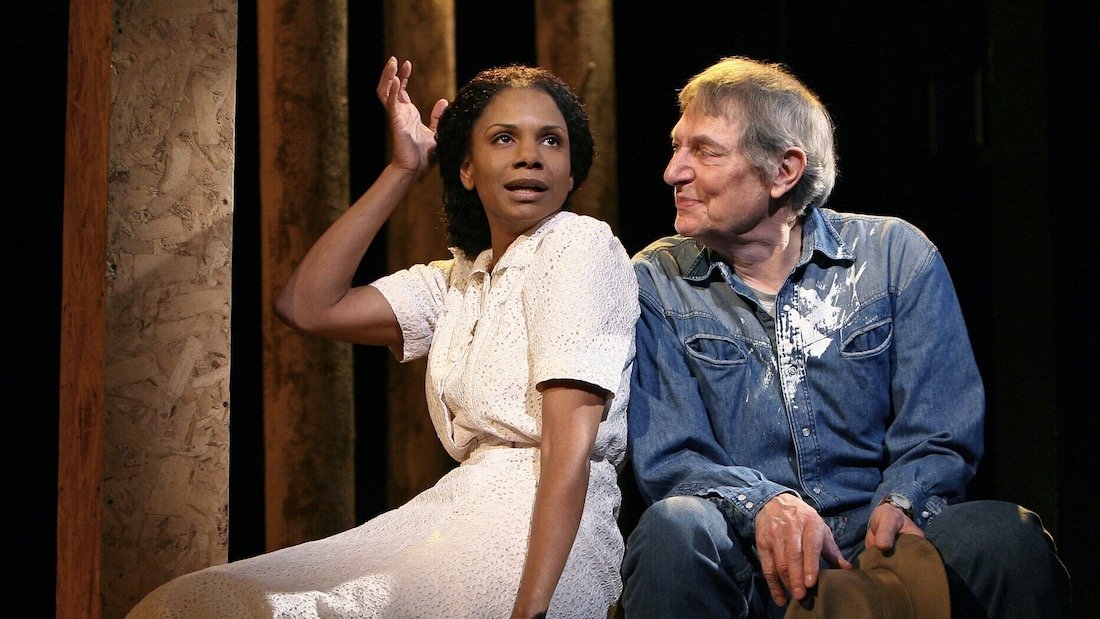
Dorothy Fields (1905-1974) was a brilliant and prolific librettist/lyricist for stage and film. In a career spanning 48 years, she wrote more than 400 songs, contributing to 15 stage musicals and 26 movies.
Fields wrote the lyrics to such standards as “I Can’t Give You Anything But Love,” the Academy Award-winning “The Way You Look Tonight” with composer Jerome Kern, “On the Sunny Side of the Street,” “I’m in the Mood for Love,” “I Won’t Dance,” “A Fine Romance,” “I Feel a Song Coming On,” “Lovely to Look At,” “I’ll Buy You a Star,” “Pick Yourself Up,” “Big Spender,” “If My Friends Could See Me Now” and “Nobody Does It Like Me.” Her final Broadway scores, written with Cy Coleman, were Sweet Charity and Seesaw.
Born in Allenhurst, New Jersey, Fields grew up in New York City. Though she came from a theatrical family, she began her career as a teacher and lab assistant first before dedicating herself fully to writing. Her lyrics were known for their strong characterization, clarity in language and humor. An amateur pianist and lifelong lover of classical music, she was acutely aware of melodic lines and was adept at fitting lyrics to tunes perfectly. In March 1971, Fields became an inaugural inductee of the Songwriters Hall of Fame.
Let’s celebrate the 120th anniversary of Dorothy Fields’ birth with this look at some of her most iconic works.
1928: Blackbirds of 1928
Fields’ career as a professional songwriter took off in 1928 when composer Jimmy McHugh, who had seen some of her early work, invited her to provide him some lyrics for a new revue featuring the vocalist Adelaide Hall at Les Ambassadeurs Club in New York. At first, producer Lew Leslie believed they were missing a “smash” tune. The team pondered for a while before finally playing Leslie “I Can’t Give You Anything but Love, Baby,” which turned out to be the hit of the revue.
1930: Lew Leslie’s International Revue
Fields’ next hit song was “On the Sunny Side of the Street,” a 1930 collaboration with McHugh that premiered in the Broadway adaptation of Blackbirds of 1928, now titled Lew Leslie’s International Revue, starring Harry Richman and Gertrude Lawrence. The song became a jazz standard, covered by Louis Armstrong, the Nat King Cole Trio, Dave Brubeck, Earl Hines, Benny Goodman, Lionel Hampton, Dizzy Gillespie, Count Basie, Lester Young and many others.
In the mid-1930s, Fields began writing lyrics for films, collaborating with several composers. Roberta, adapted from the 1933 Broadway musical of the same name, was a 1935 movie musical released by RKO Radio Pictures, directed by William A. Seiter and starring Irene Dunne, Fred Astaire and Ginger Rogers. Two Dorothy Fields songs, “I Won’t Dance” and “Lovely to Look At,” were added to the film, and both became #1 hits in 1935. The latter addition was nominated for the Academy Award for Best Song. Both songs achieved enormous popularity and are considered standards in the Great American Songbook.
1935: Every Night at Eight
“I’m in the Mood for Love,” written by McHugh and Fields, was introduced in 1935 in the movie Every Night at Eight. This musical comedy film from Walter Wanger Productions Inc. and Paramount Pictures starred George Raft and Alice Faye. The film involved a trio of young female singers trying to break into show business after being fired from their jobs. The trio (which includes Patsy Kelly, who introduced “I Can’t Give You Anything But Love” onstage) tries to make a career as a singing group. George Raft is the band leader who hires them. This film is a lightweight affair, but it introduced some great songs, including “Speaking Confidentially,” “Take It Easy” and “I Feel a Song Coming On,” which gets a big production treatment.
1936: The King Steps Out
This 1936 musical comedy movie, directed by Josef von Sternberg and starring Grace Moore, Franchot Tone and Walter Connolly, featured songs with lyrics by Fields and music by Viennese composer and violinist Fritz Kreisler. The title song was popular in the 1930s and was featured in several films, including the 1935 hit The Great Ziegfeld. Fun fact: Broadway legend Gwen Verdon made her movie debut at age 11 doing a ballet solo in this picture.
1936: Swing Time
The song “The Way You Look Tonight” from the film Swing Time earned lyricist Fields and composer Jerome Kern a 1936 Academy Award for Best Original Song. Lush and warmly romantic, the song has been featured in dozens of films, remaining immensely popular at weddings and anniversaries.
1946: Irving Berlin’s Annie Get Your Gun (US/UK)
Fields originated the idea of doing a musical based on the life of sharpshooter Annie Oakley in the mid-1940s. Annie Get Your Gun, directed by Joshua Logan and starring Ethel Merman as Annie Oakley and Ray Middleton as Frank Butler, opened at the Imperial Theatre on May 16, 1946. A playful romp highlighted by gloriously melodic tunes, the show was a smash success, and critics cheered. Fields co-wrote the book with her brother Herbert, and Irving Berlin provided the now legendary score.
1951: A Tree Grows in Brooklyn
This charming musical, with a book by George Abbott and Betty Smith, lyrics by Fields and music by Arthur Schwartz, is based on Smith’s autobiographical 1943 novel, which was a bestselling success. After working together on Stars in Your Eyes back in 1939, Fields and Schwartz reunited for this 1951 Broadway hit. “Love Is the Reason” and “I’ll Buy You a Star” are just two of the songs that emerged from this classic musical.
1959: Redhead
Fields’s biggest success of the 1950s was Redhead, a musical featuring music by Albert Hague, lyrics by Fields, and a book co-written by Fields, her brother Herbert, Sidney Sheldon and David Shaw. Set in a London wax museum in the 1880s around the time of Jack the Ripper, the musical is a comic murder mystery. Starring Gwen Verdon and Richard Kiley, Redhead opened on Broadway in 1959 and won six Tony Awards, including Best Musical.
Fields’ career took a new turn when started collaborating with Cy Coleman in the 1960s. Their first work together, Sweet Charity, explored the turbulent love life of Charity Hope Valentine, a hopelessly romantic but comically unfortunate dance hall hostess in New York City. With music by Coleman, lyrics by Fields and book by Neil Simon, the 1966 hit was adapted from the 1957 Italian film Nights of Cabiria. Opening on Broadway at the Palace Theatre on January 29, 1966, the show starred Gwen Verdon, John McMartin, Helen Gallagher and Thelma Oliver and played for 608 performances. “Big Spender” and “The Rhythm of Life” are two of the show’s musical highlights.
Fields and Coleman’s second collaboration was also a Broadway hit. Based on the William Gibson play Two for the Seesaw, this rom-com musical featured a book by Michael Bennett, music by Coleman and lyrics by Fields. The plot focuses on a brief affair between Jerry Ryan, a young lawyer from Nebraska, and Gittel Mosca, a kooky, streetwise dancer from the Bronx. Opening on Broadway on March 18, 1973, the show featured the crowd-pleasing song “It’s Not Where You Start, It’s Where You Finish.”
1979: Sugar Babies (US)
Conceived by Ralph G. Allen and Harry Rigby, this nostalgic Broadway revue featured music by Jimmy McHugh and lyrics by Fields, Al Dubin and various others. A riotously funny trip back in time for those who remembered burlesque, Sugar Babies was a happy discovery for those too young to recall the irreverent form of American entertainment. Pulling heavily from Lew Leslie’s International Revue, Allen and Rigby reworked the score and scenes into their hit 1979 show, featuring the songs “Exactly Like You” and “Don’t Blame Me.”
The 1999 Broadway musical Swing!, a jazzy musical revue, featured the Fields & Kern song “I Won’t Dance” which first appeared in the 1935 film Roberta. For the 1999 Broadway production, Fields was credited for her revised lyrics.
Dorothy Fields was indeed a giant of the American musical theatre. Writing at a time when the art form was new, Fields contributed to shows from burlesque through the Golden Age to the era of the modern musical. And she always did it with craft and style, exemplified by these lyrics from her Academy Award-nominated song, “Lovely to Look At:”
Lovely to look at,
Delightful to know and heaven to kiss.
A combination like this,
Is quite my most impossible scheme come true,
Imagine finding a dream like you!
You’re lovely to look at,
It’s thrilling to hold you terribly tight.
For we’re together, the moon is new,
And oh, it’s lovely to look at you tonight!
For more great musicals from Dorothy Fields and other writers, visit Concord Theatricals in the US or UK.

Newly Available for Licensing – December 2025 (US)

Newly Available for Licensing – December 2025 (UK)

